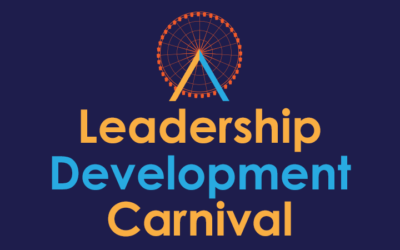Study: The Female Factor (Harvard Business Review, Woolley and McGovern, 2011). A study on women in groups and working in groups.
Finding: The IQ of individuals in a group is not as important as how balanced it is in terms of social perceptiveness. Gender-diversity and women’s statically significant likelihood of adding social perceptivity to a group, can raise the group’s intelligence and ability to perform well. In short, bringing women into the group causes the intelligence to rise.
InPower Insight: Add more women to your groups and watch the team’s overall collective intelligence skyrocket.
Summary
The question was asked: do smarter people make smarter groups? The answer was a definitive, no. The factor that makes groups smart appears to be the balance of women they include in their midst. That’s great news! In this study, conducted by Carnegie Mellon professor Anita Woolley and MIT professor Thomas Malone, it was found that when groups included more women, their collective intelligence increased. For this study teams were created across a wide age range (18 to 60) and they were assigned a number of tasks that required team problem-solving. Tasks included solving puzzles, brainstorming and decision-making.
The surprising finds of this study were, the things that were hypothesized to be predictive of how a group would perfrom, were not. Group satisfaction, group cohesion, and group motivation were found to be non-factors when determining overall collective intelligence. Another surprising finding was that individual intelligence was also not a factor. The teams with members having high IQ scores did not fare as well as predicted while the groups that included more women excelled. In these more gender-diverse groups it was found that members were more prone to listen to each other, more open-minded and better able to accept constructive criticism rather than attempting to dominate the conversation. This was found to be in contrast to groups with all members having high IQs, who did not show the same sense of teamwork.
With this in mind Wooley and Malone have determined that not only is gender-diversity important to how a group functions and excels but really, the more women the better. Why is it that women in groups and gender-diverse groups are trumping groups of high IQ? Wooley’s later research seemed to confirm that women are more “socially sensitive” and bring such things as cooperation, motivation, and satisfaction among group members, to the table. While men can bring social sensitivity to the table as well, having a proportional number of women at the table increases the likelihood that such social sensitivity will be a key factor in the group’s outcome. In other words, it’s not necessarily the fact that they are women that contributes to the better outcome, but that by having women at the table, your chances of having a meaningful dose of social sensitivity goes up, and this is what contributes to positive outcomes. Here’s how the research paper describes this phenomenon:
We also found that the proportion of women in the group was a significant predictor of c. However, this result was largely explained statistically by the fact that women, on average, score higher on tests like the RME than men. So, it may be that what is needed for a group to be collectively intelligent is a number of people who are high in social perceptiveness. And if a group is made up of highly socially perceptive people, then it may not matter much whether they are men or women. When we tried to predict collective intelligence from a group’s average social perceptiveness, the percentage of women in the group, and the distribution of speaking turns (discussed further below), we found that all three factors had similar predictive power for c, but only the predictive power of social perceptiveness was statistically significant (Woolley et al., 2010).
NOTE: If you’re interested in the role of factors like social sensitivity, you may enjoy this discussion of Google’s learnings around team productivity and psychological safety.
Career Coaching Tip: For women: the next time you’re in a meeting or group discussion, if you feel you may not add much to the conversation and are inclined to speak less – don’t. Speak up! The group you are in is likely to perform better because you are in it and participate. For men: if you’re in a diverse group and notice the men dominating the conversation, encourage the women to participate because in the mixed gender dynamic you’re group is likely to produce smarter results. For both genders: recognize that in the interactions between men and women where both are participating, your group effort is strengthened. Value each other’s contributions and encourage collaborative discussion between the genders to get the best possible output.
Note about The Woman Effect Research Index: This study was performed by researchers not affiliated with InPower Women. Our Research Index includes all relevant research to the subject of women, business and power. We do not influence how the research was conducted or reported by the researchers. In our abstracts, we focus on pulling out the most actionable advice for individual women. To suggest additional research we should index, or discuss our choice of abstract focus, please contact us.
Guide to Women in Leadership
Organizations with women in their executive suites regularly out-perform others. Yet rising female executives (and their mentors) are frustrated at how hard it is to break through the glass ceiling. In this extensive guide, Executive Coach Dana Theus shares her tried and true strategies to help women excel into higher levels of leadership and achieve their executive potential.







